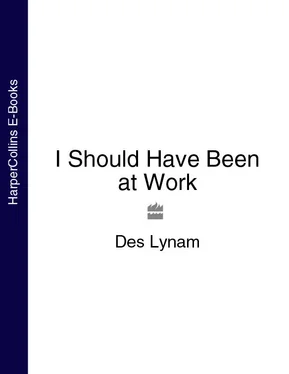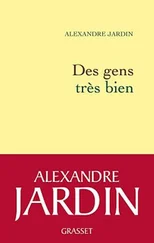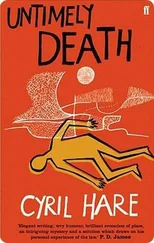But it was back in England that I remember enjoying one of the best days of my life. I was ten years of age and it was Christmas morning. I had received a great array of presents, everything I could have wished for, when Dad called me from the kitchen. ‘There’s something here in a big parcel,’ he said. ‘What can this be?’
I ran in, and there underneath the cardboard wrappings was a brand new Raleigh bicycle. I don’t think at any time in my life since have I exceeded the happiness of that moment.
But that morning, a boy who lived across the road learned that his mother, who was probably only in her early thirties, had suddenly died – on Christmas Day. I could see his pale face looking through the window of his house, tears streaming down. I took my bike several streets away to ride it. I didn’t want to display my happiness in front of his abject misery.
As I went through my years at junior school, it became clear that I had a good chance of passing the Eleven-Plus examination. In every test I usually came top or near the top of the class. When the examination came round, Dad promised me a cricket bat if I passed, which I did. I still have the bat, with the signature of the then famous England captain Len Hutton inscribed on it. Years later when I interviewed Len, who had long been retired, he asked me to sign an autograph for him, for his grandchild. How could I have imagined at eleven years of age such a turn of events? Dad told me later that the bat would have been mine even if I had not passed the exam. ‘You would have had it for trying your best,’ he said.
Janice Prossor was also successful. My pal Micky Weller was not. He was distraught and deemed to be a failure at that tender age. Whenever I hear arguments in favour of that life-changing test, I think of Micky’s tears.
And so, in September 1954, I was off to Varndean Grammar School for Boys along with Pat Dale, Ron Cavadeschi and Geoff Macklin, who had also picked up enough information at St John the Baptist – in addition to the catechism and the doctrine of the Immaculate Conception – to win places to Varndean.
I was now the proud possessor of a red blazer with black piping and a ‘Just William’ style cap, similarly decorated. The blazer was a bit on the large side. It had to last. I found myself studying subjects like Latin and Chemistry and Physics, playing sports on Thursday afternoons on the spacious playing fields, and being introduced to the marvellous game of chess, which I enjoy to this day.
For a time I was a member of the Army section of the Combined Cadet Force, which was compulsory for a year. I learned how to fire a rifle and a Bren gun and march up and down. On our first day a boy called Douglas Pitt, later a university professor, volunteered to show us how to march at the request of the officer in charge. He did so with his left arm and left leg in unison rather than right arm, left leg. We were hysterical with laughter, and so was the officer/master in charge of us. Another cadet, Eric Cager, when asked what he thought camouflage meant, replied, ‘Is it when we put trees on our heads, sir?’ I enjoyed all that; but what I hated was getting on the school bus on ‘Cadet’s Day’ in my army gaiters and heavy boots and being the subject of much ridicule as the local ‘secondary moderns’ spent the ride saluting and making wisecracks. I made some great new friends at the school, in particular Doug Hillman, with whom I still play tennis nearly half a century later, and Charlie Trinder, whom I visit in America, and many others.
And I discovered Brighton and Hove Albion.
I had of course heard a great deal about the local professional team and knew the names of the players, but I had never been to the famous old Goldstone Ground in Hove until a neighbour, Bob Seymour, invited me along with his two daughters. They were of a similar age to me, and I was desperately in love with both of them, though they treated me with considerable disdain. I had been looking forward to the experience for weeks. We arrived, me in particular in a high state of excitement, and found ourselves, standing of course, behind the goal in the north enclosure. Being small, we were helped to the front. These were the days when football crowds were sporting and friendly, long before hooliganism took its ugly hold on the game. In the kick-in before the match started, a Brighton player called Des Tenant (my favourite because he shared my Christian name) fired the ball past the goal and flush into the face of one of Bob’s daughters, who had not been quick enough to get out of the way. She was knocked down and out. Off we went to casualty, where she was revived and checked over for any serious head injury. I described the incident years later as my first experience of a woman’s headache getting in the way of a lot of fun. My enthusiasm for the club was undimmed by this experience, however, and I have been a lifelong fan during their ups and downs, of which there have been many.
I played football for the school and took up tennis instead of cricket, although I continued to play the latter in the park on summer evenings. And I found myself shooting up from about five foot three to six feet tall. Suddenly I was gangly, and very self-conscious of it. Luckily, my mother told me to stop stooping and be proud of my height.
My first form master at the grammar school was Michael Wylie, known as ‘Bubble’ for his rounded features and frame, under whose care and guidance I soon began to excel in class, especially at English, Maths and Latin, and I was marked out as having university potential. I took part in a couple of ‘house’ plays but was never ambitious enough to go the whole hog and try for a part in the school’s annual Shakespearian production.
Meanwhile, my mother, who was a good dancer, persuaded me to enrol for ballroom dancing lessons at the Court School of Dancing. ‘You don’t want to be an eejit all your life, with two left feet,’ she said, and so, rather sulkily, off I went, to be clutched to the bosom of some old lady of about twenty-eight years of age as she tried to instil in me the basic moves of the quick step, the foxtrot and the waltz. I was much more interested in her bosom and found myself sexually aroused as she held me tightly. I think she was having some fun at my expense as she nodded and winked to her fellow instructress whenever I took to the floor with her. On Saturday nights there would be a free dance night when all the pupils and guests would turn up to show off their limited skills. It was full of pretty girls outnumbering the men and boys by about three to one. I had a whale of a time.
Back at school, my academic ambitions waned, and although I managed a good crop of exam results I could not envisage putting my parents through three extra years of struggle to keep me studying, and so I left without going on to university. My father, who might have been a doctor had he had the chance to further his schooling, had thoughts that I might be able to move in that direction; but having absolutely no ability whatsoever in science subjects, that hope went out of the window. I wanted to be a journalist, or, as I saw it, a newspaper man. We read the Daily Mirror at home and I was a big fan of their chief sportswriter, Peter Wilson, whom I got to know many years later. His by-line described him as ‘The Man They Can’t Gag’. I also avidly read William Connor, the columnist who wrote under the pseudonym of ‘Cassandra’, the prophetess of doom, and who extraordinarily lost a libel case to the American showman Liberace after describing him as effeminate. Try as I might, though, and I must have written scores of letters to various publications, I had no luck in that direction, and so I joined a bank. My headmaster, who was highly critical of my leaving school without going on to college, having been unable to persuade me to stay on, wrote a letter of introduction to a contact of his who was the general manager of the Bank of London and South America. I went off to Threadneedle Street in the City of London for an interview and was offered a job. It would entail six months’ training and I would then be posted to Buenos Aires. ‘We’ll never see you,’ said my mother on hearing about it. So I joined a bank a little closer to home, in Brighton. I hated every waking minute of it.
Читать дальше












